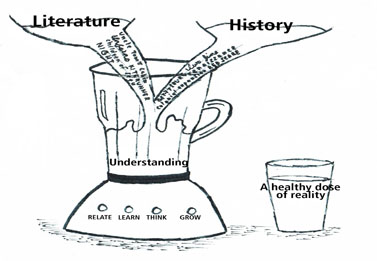 Consider expanding integrated classes due to overflowing interest in World Studies
Consider expanding integrated classes due to overflowing interest in World Studies
 Integrating courses means classes teach students to make connections between different aspects of learning they never thought to connect. In the case of World Studies, if it is similar to the current junior class American Studies, students start to think with the mindset that history affects literature. The two subjects are connected instead of being separate entities.
Integrating courses means classes teach students to make connections between different aspects of learning they never thought to connect. In the case of World Studies, if it is similar to the current junior class American Studies, students start to think with the mindset that history affects literature. The two subjects are connected instead of being separate entities.
For example, reading the World Literature book, “Nectar in a Sieve”, while studying the culture of India in a World History class might make the poverty-stricken characters easier to relate to because the reader knows the background information. In our current situation, literature teachers spend class time going over this background information, when they might have already have gone over it in their history class a month earlier.
A class like this allows for drawing connections between two seemingly unrelated topics, such as literature and history, which is a great life skill to have to improve general comprehension of a subject. Remember those exercises in literature classes in middle school? They taught us to connect “text-to-text”, “text-to-self”, or “text-to-world” to understand the deeper meaning, making way for more critical thinking while analyzing a reading. So we, as students, not only of MVHS but the world, should really strive to expand on this kind of thinking. Why not start thinking about combining Biology with Chemistry?
Takers of those classes already know that the two overlap in so many ways. A “biochem” class makes logical sense in the world outside of school and separating them only makes it harder for interested students to make those connections when taking this class in a college-level course. Similarly, many of those taking Physics and Calculus will tell you that ideas from the two classes are related as well.
Judging from the popularity of the class, it’s clear that students are interested in and willing to think about general courses in a more innovative way. In the future, we should try to expand the benefits to even more academic areas, not just literature and history. Because in the end, it helps us as learners, not just as students.








